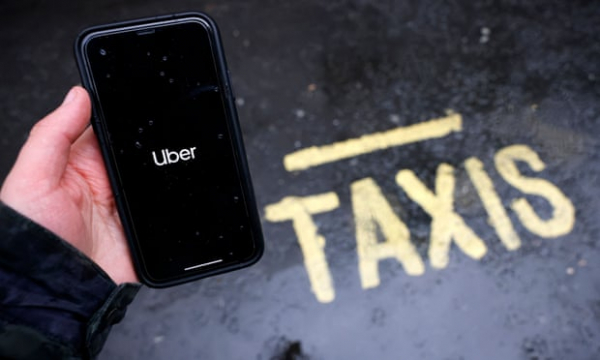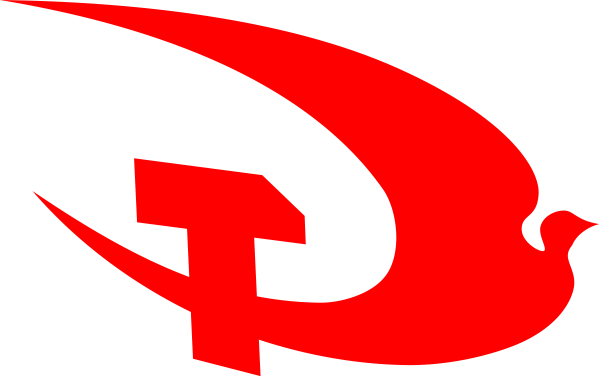As drivers, we know Uber’s British union ‘deal’ is not all it seems
Nader Awaad is an Uber driver and elected chair of United Private Hire Drivers (UPHD), a branch of the IWGB
As an Uber driver campaigning for my rights, I was disappointed to learn that the deal announced by Uber with the GMB union last week was a dud. The fact that an agreement that signs away collective bargaining on pay was celebrated as a turning point for gig economy workers is a sad reflection of the state of the British trade union movement. It’s also quite obviously a PR move by Uber, but the fact that it felt it necessary to offer up an olive branch, however meagre, is at least testament to the power being built by drivers on the ground.
Uber is a multibillion-pound global corporation which has long refused not only dialogue with unions but even to acknowledge its workers as workers. It has not suddenly made peace with the labour movement. The very same week it struck a deal with the GMB in Britain, in California it betrayed drivers, removing control over fares and working conditions that it had given them ahead of voting for “proposition 22”, a ballot that exempts app-based transportation and delivery companies from providing employees with full benefits. Uber is now trying the same trick in Canada with a rebranded program called Flexible Work+.
So if Uber is still Uber, what does the GMB recognition agreement mean for drivers, and where did it come from?
In the short term the answer is unfortunately “not much”. Trade union recognition agreements generally commit employers to regular meetings to discuss concerns raised by that union’s members. However, they generally do not commit employers to act on those concerns and they can be dropped at will. On their own, then, they establish little more than your right to be ignored by the boss over tea and sandwiches. It is the collective power and fighting spirit within the union signing them that makes an agreement meaningful – just as is the case in negotiations that happen outside a recognition agreement.
This one is particularly weak because Uber has been allowed to cherrypick the issues on which it will permit collective negotiations, and the vital issue of pay is not on that list. It should not be up to the employer which workers’ rights they opt into, when they listen to workers and when they don’t. This is an agreement to fight with one hand tied behind your back.
I joined the drivers’ branch of the Independent Workers Union of Great Britain (IWGB) because I came to see that poverty pay, job insecurity and poor health and safety protections can be overcome if we build a fighting union. Supporting my family on my income as an Uber driver proved to be impossible, and I had been forced into debt. For drivers like me, our right to negotiate pay is more than some political demand – it’s the difference between getting by and giving up. So when I learned that the agreement did not incorporate that right, I was tempted to dismiss it as only another PR facelift from the corporation that brought us Prop 22 and Flexible Work+.
But it’s a facelift Uber needs, because it’s on the back foot. For years it managed to present a false choice between flexibility and workers’ rights. Earlier this year it was defeated very publicly on this point in the UK supreme court. And, at the same time, the public could see that taxi drivers were working without sick pay or PPE provision on the frontline of the Covid crisis, and dying in disproportionate numbers. Having fought the ruling tooth and nail, Uber still presented the new rights it granted as though they were its own idea.
In reality, Uber has still not accepted and fully implemented the court’s ruling, and unions should be calling them out on that. Drivers were supposed to receive the national minimum wage as long as they were logged into the app, but every day we still face unpaid waiting times. This forces down our pay after costs so much that I have to work 12- to 14-hour shifts just to break even. That’s a recipe for accidents, but what choice is there when the level of deprivation I see among colleagues is terrible. It’s like living in a Charles Dickens novel.
While Uber continues falling short of its minimum obligations under the law, the timing of this agreement and Uber’s determined promotion of it - including an article co-authored by a GMB organiser and a senior manager from Uber for the Evening Standard – tells you everything you need to know about whose interests it serves. Exploitative employers striking deals with an amenable trade union as a way of heading off those who pose a bigger threat is a well-established union-busting tactic.
Uber will use this agreement to appear, to the inattentive observer, las if it’s engaging with its workforce. But if that were so, it would open dialogue with all unions, including the one representing the largest number of unionised Uber drivers in the UK, to which I belong – the United Private Hire Drivers (UPHD) branch of the IWGB.
I predict Uber’s strategy to defend an exploitative business model unburdened by workers’ rights will be to avoid unions altogether, denying workers status where it can; dividing the trade union movement and pursuing toothless agreements where it can’t. New grassroots, worker-led unions like the IWGB, which was founded by migrant workers who felt unrepresented in their union, owe our very existence to the fact that workers need a fighting alternative and are willing and able to build one.


